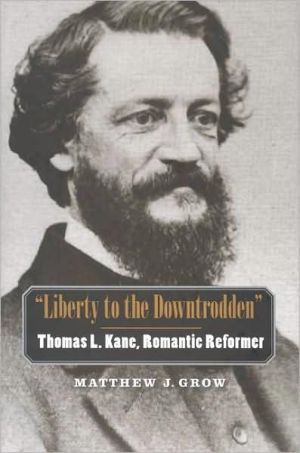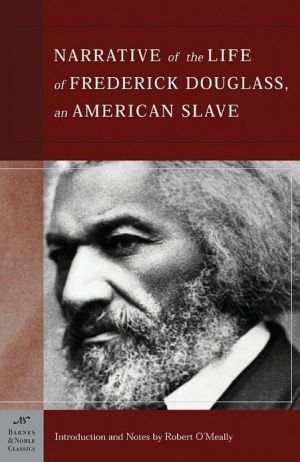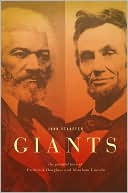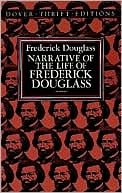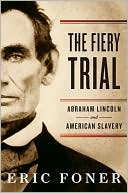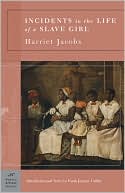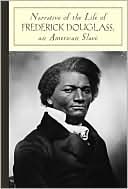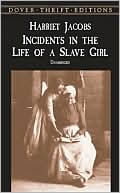Liberty to the Downtrodden: Thomas L. Kane, Romantic Reformer
Thomas L. Kane (18221883), a crusader for antislavery, women’s rights, and the downtrodden, rose to prominence in his day as the most ardent and persuasive defender of Mormons’ religious liberty. Though not a Mormon, Kane sought to defend the much-reviled group from the “Holy War” waged against them by evangelical America. His courageous personal intervention averted a potentially catastrophic bloody conflict between federal troops and Mormon settlers in the now nearly forgotten Utah War of...
Search in google:
Thomas L. Kane (1822–1883), a crusader for antislavery, women’s rights, and the downtrodden, rose to prominence in his day as the most ardent and persuasive defender of Mormons’ religious liberty. Though not a Mormon, Kane sought to defend the much-reviled group from the “Holy War” waged against them by evangelical America. His courageous personal intervention averted a potentially catastrophic bloody conflict between federal troops and Mormon settlers in the now nearly forgotten Utah War of 1857–58. Drawing on extensive, newly available archives, this book is the first to tell the full story of Kane’s extraordinary life. The book illuminates his powerful Philadelphia family, his personal life and eccentricities, his reform achievements, his place in Mormon history, and his career as a Civil War general. Further, the book revises previous understandings of nineteenth-century reform, showing how Kane and likeminded others fused Democratic Party ideology, anti-evangelicalism, and romanticism.
"Liberty To The Downtrodden"\ Thomas L. Kane, Romantic Reformer \ \ By Matthew J. Grow \ Yale University Press\ Copyright © 2009 Yale University\ All right reserved.\ ISBN: 978-0-300-13610-4 \ \ \ Chapter One\ Raising Kane \ Reflecting on his early life at the age of twenty-eight, Thomas Kane stated, "I have been born with the gold spoon in my mouth, to station and influence and responsibility, here," referring to Philadelphia, "and it is here that God means me to administer to these and be holden to account for my stewardship." From his prominent upper-class family, Kane inherited wealth, connections, ambition, noblesse oblige, and an attachment to Philadelphia. Though recently eclipsed as the nation's largest city and commercial center by New York City, the Philadelphia of Kane's youth still retained its role as an international hub of trade and had begun its transition from a leading seaport to a center of industry. In addition to being attuned to the transatlantic world, elite Philadelphians like the Kanes had a southern orientation. Given the city's central location between North and South, most upper-class Philadelphians had connections with the South through business arrangements, kinship ties, and political alliances. Kane's childhood in Philadelphia and the influence of his tight-knit family, particularly his powerful father John and his dynamic older brother Elisha, casta long shadow on his life and guided his future reform enthusiasm and trajectory.\ Thomas's father, John Kintzing Kane, exerted an enormous (at times overbearing) influence over him. John's paternal grandfather and namesake, John Kane, immigrated to America from Ireland after his conversion from Catholicism to Anglicanism and married Sybil Kent, daughter of a prominent evangelical preacher. Loyalists during the American Revolution, John and Sybil lost their substantial property and fled to Nova Scotia. Following the Revolution, seven of John's sons, including Thomas Kane's grandfather Elisha, returned to America and established a mercantile firm, Kane and Brothers, which shipped goods between the American frontier, New York City, and Europe. Elisha's first wife, Alida Van Rensselaer, came from a distinguished New York patroon family. Their first child, John, was born in Albany in 1795; Alida died four years later following the birth of a daughter. After her death, Elisha took his young family to Philadelphia, where he married Elizabeth Kintzing, established a local branch of Kane and Brothers, and rose to some prominence as a merchant. John became close to his stepmother and took Kintzing as his middle name. Educated at Yale, he subsequently studied law and was admitted to the bar in 1817.\ Two years later, the young lawyer married Jane Duval Leiper, whom he had courted since the age of seventeen. The marriage was not only a love match-John called Jane "the light to my world of dreams"-but was also politically savvy, as it gave John an entrée into high-level politics. Jane's father, Thomas Leiper, a native of Scotland, had compiled a distinguished record in both business and politics; he fought in the Revolution, maintained a friendship with Thomas Jefferson, and served as president of the Philadelphia Common Council on three occasions. Leiper's own marriage to Elizabeth Gray, daughter of a Quaker revolutionary who had served as the speaker of the Pennsylvania Assembly, had solidified his social status. An entrepreneur, Leiper processed, distributed, and sold tobacco; operated a stone quarry; and built the first commercial railroad in the United States.\ Jane had other endearing qualities besides a politically connected family. Reputed to be "one of the most beautiful women of her day," she and John were chosen to open a ball given in honor of the Marquis de Lafayette in Philadelphia in 1824 during Lafayette's triumphal American tour. Inspired, the Philadelphia portraitist Thomas Sully painted Jane in her gown. The Kanes had seven children. Elisha Kent arrived first in February 1820. Thomas Leiper, named for his maternal grandfather, came two years later, on January 27, 1822. Like Elisha, he was baptized a Presbyterian. Next came John, who died in infancy, followed by Robert Patterson (Pat) in 1827, the only daughter Elizabeth (Bessie) in 1830, John Jr. in 1833, and William in 1838. (See the Kane family chart in the appendix.) Musically talented, Jane imparted a love of music to her children (Thomas sang and played the piano). Her children also inherited some of her personality traits. Her son-in-law Charles W. Shields described her as "distinguished for the energy, nerve, elasticity, and warmheartedness which became famous in her son." Though Shields referred to the firstborn Elisha, the same held true for Thomas.\ After his marriage, John quickly entered the political world, using Leiper and Kane connections to pave the way. During a visit to Washington, D.C., in 1823, he reported that his uncle Elias Kane "ranks here among the first; and for his sake and to win his influence ... the leading men of all parties have lavished their civilities on me." His social calendar had been so full-including meetings with Martin Van Buren, John C. Calhoun, and John Quincy Adams-that he had "refused invitations from Mr. [Daniel] Webster for dinner & Mrs. Adams for tea." The following year, John was elected to the Pennsylvania legislature as a Federalist. As a legislator, John wrote anonymous political reports for newspapers, beginning a pattern of anonymous writing that marked his own political career and his son's reform efforts. To Jane, he portrayed himself as stubbornly standing on principle in the face of political pressure and public disapproval, a self-image he bequeathed to Thomas. His "conscientious & straight forward" actions had "thwarted many private interests," causing him to "have been traduced most abominably in Philadelphia." Nevertheless, John concluded, "I never asked for popular approbation till I had secured that of my own conscience."\ John left the waning Federalist Party even before the end of his legislative term, repulsed by the "corrupt bargain" between John Quincy Adams and Henry Clay following the disputed presidential election of 1824, which supporters of Andrew Jackson believed robbed him of the presidency in favor of Adams. In 1828, John worked extensively for Jackson's presidential campaign. He later wrote, "I was in it up to the armpits. I called meetings, collected money, got up transparencies, engaged election houses, conducted correspondence, and wrote pamphlets." His pamphlet Candid View of the Presidential Question contrasted the self-made man and national hero Jackson with the elitist Adams. Distributed nationally, Candid View helped create a new type of campaigning through the popular press and pamphleteering.\ After the 1828 election, which saw Democrats led by Jackson triumphant both nationally and in Philadelphia, Kane accepted a post as city solicitor and began to move in leading Democratic circles. Nevertheless, he expressed ambivalence about elected or appointed office (an attitude his son inherited), a standard stance during this era when political ideology was still deeply antiparty though parties were coming to dominate actual politics. In 1831, John lamented the "hatred, sad flattery, and backbiting, and lies,-the whole atmosphere of Washington." "And yet," he added, "there is excellent and agreeable society in Washington." Kane greatly admired Jackson, "the immeasurable superior of all the men I have ever seen." In turn, Kane impressed Jackson with his ability and loyalty. Indeed, he claimed to be the "writer of the first newspaper article" that attacked the National Bank following Jackson's declaration of war on the bank as a symbol of monopoly and tyranny. Kane's antibank stance earned him opprobrium in Philadelphia, a center of anti-Jackson sentiment and the home of the bank, but won him gratitude from Jackson, who made opposition to the bank central to Democratic orthodoxy.\ In 1832, Jackson tapped Kane to be one of three commissioners to decide on claims as established in an 1831 treaty in which France agreed to repay attacks on American neutral shipping during the Napoleonic era. Bickering between France and the United States over the payment became one of the central foreign policy events of the Jackson presidency and elevated the role of the commissioners. John's work on the commission lasted until 1836, and his time in Washington deepened his political contacts and made him a nationally known Democratic insider. He gradually entered into Jackson's trust, and his letters indicate frequent meetings, both social and political, at the White House. Indeed, it was rumored that John ghostwrote some of Jackson's presidential messages. His close relationship with his cousin Elias Kane, a respected Democratic senator from Illinois until his untimely death in 1835, also introduced John into the "best social circles in the country." The visitors to Elias's Washington home (besides John) included Vice President Martin Van Buren, "the elite of Congress and the Departments," and prominent literary figures.\ Although John occasionally took public leadership roles, he preferred to exert his influence as one of the "men behind the curtain, that taught the wires how to move," a trait Thomas shared. In a biographical sketch, Thomas proudly described his father as "a writer of other men's speeches-a prompter of the stock performers on the stage, who could find his sufficient reward and enjoyment in seeing the drama enacted of which he might have claimed to be the author." John controlled the action from offstage particularly through anonymous writings. According to Thomas, John edited "several popular works in law, medicine, and divinity" on behalf of "unlettered friends," as well as authored "numerous reports of engineers and legislative bodies." John himself said he had "written in my day on all sorts of subjects, and in almost every assignable degree of ignorance," including everything from a "Piano Instructor" to an "Archer's Manual." His political pamphlets circulated "by the ten thousand," and he twice served as a part-time newspaper editor.\ John in many respects represented the nouveau riche among Philadelphia's more established elite, but his ability and gentlemanly manner, noted by even his political enemies, won him entrance to the city's most exclusive scientific, literary, and cultural circles. Philadelphia lawyer Sidney George Fisher, who thought Kane "unscrupulous in defending doctrines that tended to gratify his ambition," nevertheless found him "genial & gracious in his manners," with the "accomplishments, feelings and habits of a gentleman." The recipient of a substantial inheritance, John exuded noblesse oblige, cultivated an aristocratic aura, and furnished his home luxuriously. (The Kanes lived in central Philadelphia and, after 1848, also had a summer home north of the city.) An amateur scientist, John became a longtime leader of the American Philosophical Society, one of the country's leading scientific institutions. He also served in leadership positions in the Academy of Fine Arts, Musical Fund Society, Institute for the Instruction of the Blind, Girard College, and the Law Academy of Philadelphia.\ Although Kane's philanthropic involvement would seem to make him a likely participant in evangelical social reform, his religious and cultural outlooks were generally at odds with evangelical reformers. His childhood gave him an ecumenical streak that later influenced his son. Among his ancestors, Thomas could count Presbyterians, Congregationalists, Catholics, Dutch Reformed, Quakers, Anglicans, and Moravians. Though raised a Presbyterian, John often went to Quaker and Baptist services as a youth and also attended a Catholic school. John and Jane became devout Presbyterians, and John served as a prominent lay leader at Philadelphia's elite Second Presbyterian. The Kanes strove to raise their family in a pious Protestant environment. Thomas later remembered "when Mother heard catechism and read good books all the long Sabbath day." As a delegate to the Presbyterian General Assembly, John supported the Old School faction in the 1837-38 denominational split. Although Old School Presbyterians joined with their more evangelical brethren in some reform efforts, they were suspicious of the evangelical reform mentality. New School Presbyterians, by contrast, figured prominently in antebellum evangelical reform. John's support of the Democratic Party and his involvement in Freemasonry (Thomas noted he was a "mason of eminence" and followed his father into Masonry) further separated him from the Whigs and Anti-Masons who made up the evangelical reform community.\ In addition, John strongly defended "unqualified freedom of thought on all subjects whatever, Religion, Politics, or Science," a position that Thomas also espoused (though John would sometimes lament where Thomas's thoughts led him). In an 1841 lecture to Philadelphia's Mercantile Library Company, John decried the "intolerance of opinion" that often prevailed in the city. "There is not, there cannot be," John sighed, "a despotism more detestable" than the "unwritten code" of public opinion, which "teaches to substitute authority for argument." Progress occurred only when "some have ventured to think for themselves, holding dogmas in small respect, and spurning what they deemed error however venerable or dignified." John's advocacy of tolerance for religious and cultural pluralism reflected the beliefs of the Democratic Party. In addition, his celebration of the few willing to stand against the crowd illustrated the spirit of romanticism that also shaped Thomas's life.\ John's letters home from Harrisburg and Washington, D.C., suggest a devoted (if frequently absent) father, ambitious for his sons' futures. In 1825, he wrote to Jane, "say pretty things to the children for me, tell Elisha I love him for being good, & Tom that I have sent him a kiss, & the little pet must learn to say papa." Expressing a sentiment typical of his time, John often felt torn about his pursuit of public life and his absences from home. "Am I doomed to seek the means of life and the bauble reputation, by sacrificing that which gives life its charm and fame its value?" he asked in 1833. He fretted that he purchased his success "overdearly" and wrote longingly to Jane of the "kind welcome of Walnut Street, the clustering of my children round my neck, and the fond warm pressure of my heart to yours."\ The pressures of John's time away took their toll on Jane. In 1833, John wrote her from Washington: "What a frightful picture you have drawn me of Home! All is confusion, every body wrong, nothing, nobody as it should be." Tell his sons, John joked, that he would return with "lots of hard words and sour faces": "So, look out there, you Pat & Tom & Elisha:-I'm a-comin, as Davy Crocket says." More seriously, he reassured her that Elisha and Thomas, while rambunctious boys, had "excellent points of character," as well as "all the elements of gallantry." In 1835, John further told Jane, "More noble minded, pure-hearted boys, there are not in the world." Certainly, they had faults, but John blamed these on their education. Elisha's "first schools were bad ones," which "either broke down his spirit or suffered him to run wild." Thomas "was better trained at first," but John expressed dissatisfaction with the boys' current school, which "is not well organized, or else not well conducted." John also thought that he and Jane had tried "to teach our boys too much." He suggested their sons discontinue their music and drawing lessons (though he valued these subjects) and focus on reading, writing, math, and history. "Don't be disheartened about our boys," John concluded, "they are excellent children, and will make us happy, I doubt not."\ Jane probably had good reason to complain of her sons' behavior. Elisha's first biographer, William Elder, a friend of the Kane family, depicted Elisha as a precocious, impulsive, and "absolutely fearless" boy, with Thomas as his dutiful companion in troublemaking. "To arbitrary authority," Elisha "was a regular little rebel" and "had a pair of little fists that worked with the steam-power of passion in the administration of distributive justice." At the age of nine, Elisha tried to save Thomas from an unjustified whipping at school. The schoolmaster whipped Elisha as well for his impertinence; "the sense of injustice changed his mood to defiance" and he "quickly converted the discipline into a fracas." At the age of ten, Elisha "studied the weather, watched the moon, and carefully scanned the opportunities afforded by the nights for scaling fences, clambering over out-houses, and getting into the tree-tops" and trained Thomas "for similar achievements." One night, the brothers snuck out of bed to scale the roof of their three-story house and climb to the top of the chimney.\ (Continues...)\ \ \ \ \ Excerpted from "Liberty To The Downtrodden" by Matthew J. Grow Copyright © 2009 by Yale University. Excerpted by permission.\ All rights reserved. No part of this excerpt may be reproduced or reprinted without permission in writing from the publisher.\ Excerpts are provided by Dial-A-Book Inc. solely for the personal use of visitors to this web site. \ \
Contents Acknowledgments....................ixIntroduction....................xiiiONE Raising Kane....................1TWO Europe....................13THREE Beginnings of Reform....................28FOUR Meeting the Mormons....................47FIVE The Suffering Saints....................71SIX Free Soil and Young America....................93SEVEN Fugitive Slaves....................113EIGHT Reforming Marriage....................128NINE The Utah War, Act I....................149TEN The Utah War, Act II....................174ELEVEN Honor, Reform, and War....................207TWELVE Developing Kane....................236THIRTEEN Anti-Anti-Polygamy....................257Epilogue....................282Appendix: Kane Family Chart....................287Notes....................289Index....................337
\ Church History"[A] detailed and solidly documented book..."Liberty to the Downtrodden" accomplishes something Thomas Kane failed to do. It rescues him from obscurity and irellevance."--Tandy McConnell, Church History\ — Tandy McConnell\ \ \
